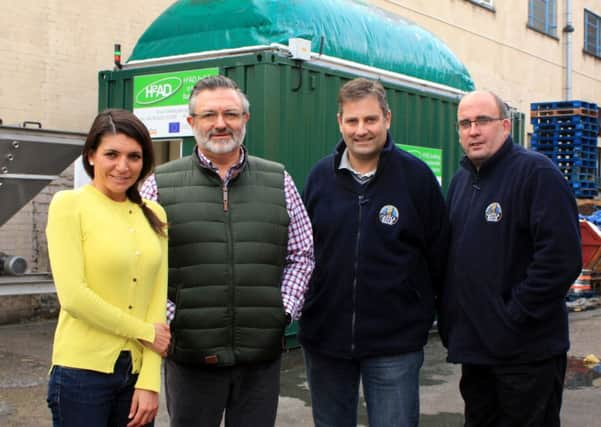Cheers! Sutton firm toasts pioneering project that turns brewery waste into energy


Lindhurst Engineering has teamed up with boffins at Nottingham University to create the innovative scheme that is believed to be a first for UK brewing and only the seventh of its kind for any industry in the world.
The scheme, called H2AD Micro AD, consists of a self-contained, anaerobic digester that has been installed at Castle Rock Brewery in Nottingham. It is intended to reduce the firm’s energy bills by up to 70 per cent by converting waste from its brewing operations into energy and cleaner waste water. The methane biogas produced will be returned to Castle Rock to help in the energy-intensive start to the beer-making process or converted into electricity.
Advertisement
Hide AdAdvertisement
Hide AdThe brewery’s managing director, Colin Wilde, said: “We are excited to make such a valuable use of research carried out at the university, and it is even more pleasing that the technology was developed in partnership with a local company.
“Test-beds proved how naturally occurring bacteria and our waste, heated to around 30 degrees, can create something useful in a continuous and very cost-effective way. Once it’s up and running, all we have to do is pump the waste in and reap the rewards.
“We create a great amount of carbon-based waste from barley, hops and yeast. The brewing process leaves thousands of litres of water fit only for returning as sewage. Now these disposal issues are resolved.”
Dr Laura Porcu, of the university, said: “The H2AD cleans waste effluents using microbes to simultaneously produce bioenergy, biogas and reusable digestate. The technology significantly reduces chemical oxygen demand levels, energy consumption and carbon emissions.”
Advertisement
Hide AdAdvertisement
Hide AdLindhurst Engineering’s chief executive Martin Rigley believes the scheme is sure to help tackle the challenge of climate change. He said: “We take great pride in telling businesses about our vision of the future. Technology such as this allows all companies and organisations in all countries, developed or developing and irrespective of size, to engage with renewable energy and reduce their carbon emissions and footprint.”